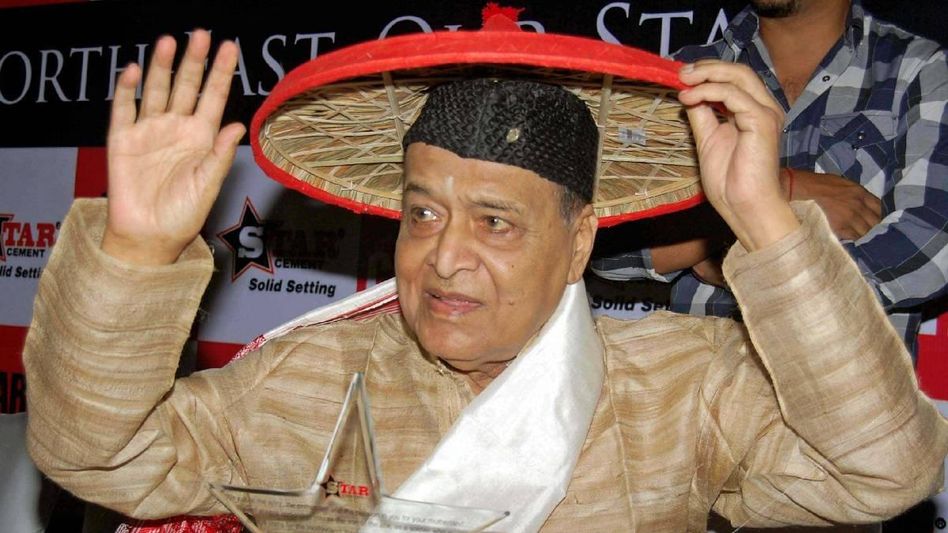Bhupen Hazarika: Remembering Musical Maestro's memorable bihugeets
On Bhupen Hazarika's death anniversary, we take a journey through his life and music. From 'Bihure Nu Birina' to 'Ah Ulai Ah Aijoni', his songs continue to resonate with the rich folk heritage of Assam.
 Bhupen Hazarika: Remembering Musical Maestro's memorable bihugeets
Bhupen Hazarika: Remembering Musical Maestro's memorable bihugeets- Bhupen Hazarika, a multi-faceted talent, was a poet, music composer, singer, actor, author and filmmaker.
- Most known for his beautiful interpretation of Assam's rich folk heritage through his music.
- Some of his most famous songs include 'Bihure Nu Birina', 'Dikhou Noi Aribo', and 'Ah Ulai Ah Aijoni'.
Revered as the uncrowned king of north-east India's music scene, Bharat Ratna Bhupen Hazarika was one of the most acclaimed artists of the 20th century. A multi-faceted talent, he was a poet, music composer, singer, actor, author and filmmaker.
He is best known for his beautiful interpretation of Assam's rich folk heritage through his music. His mother, who sang him lullabies and introduced him to traditional music, is credited with nurturing his singing talent. Today, on his death anniversary, we remember the legend through his bihu geets (songs).
'Bihure Nu Birina'
This masterpiece from the 'Chinaki Geet' album, sung by Dr Bhupen Hazarika, captures various human emotions beautifully.
'Dikhou Noi Aribo'
This spontaneous bihu song, like most others, accompanies festivities and conveys a specific emotion in each of its couplets.
'Sangor Sira Pitha'
Another gem from the 'Chinaki Geet' album, this song by Dr Bhupen Hazarika covers a wide range of themes, from nature's splendour to humorous narratives.
'June Di Umolaam'
This romantic song from the 'Chinaki Geet' album, sung by Dr Bhupen Hazarika, beautifully captures the joy and pain of love. 5. 'Ah Ulai Ah Aijoni' - This song by Bhupen Hazarika encapsulates the essence of Bihu and the themes of love and nature. It musically represents the 'Gos Tolor Bihu', where performers dance and play drums under a large tree.
Copyright©2025 Living Media India Limited. For reprint rights: Syndications Today









